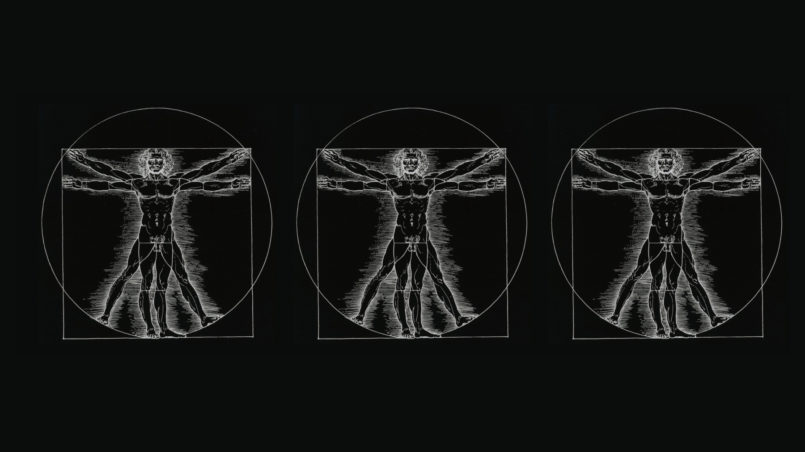The Concrete Practical Postulates

In the first part of our short series on the possibilities of a “modern deeply humanistic freedom right as a general human right”, we presented the principles of the theory of consciousness from which starting point we now move on to the concrete practical postulates for all human co-living. It is, therefore, highly recommended that, in order to enhance comprehension, the reader refers to this first part and subsequently this second part, which develops therefrom.
We have now reached the point at which we once again have to expressly stress the social i.e. common being of human freedom. From a social perspective, there is no absolute individual freedom rather only common freedom.
It is also essential to understand that the freedom of another does not in principle restrict my own freedom, as is often partially claimed. Of course conflicts can and will arise but, above all, as a result of the meeting of one’s own and others’ freedom, a common possible freedom emerges which is infinitely greater and richer than all the single parts.
That I can address someone as “you” and that this person responds, that I am together with other people in this world: what infinite possibilities of commonality can result! On the other hand, how empty the world would be for me if I were alone! At the same time, as we have already stressed, individual freedom does not end in the collective: it is a highly dynamic, dialogical “self-determination in determining”.
The right, if deeply humanistic substantiated, has an upper limit and its highest purpose in the “restriction of the freedom of everyone on the condition of their co-ordination with the freedom of everyone, insofar as this is possible according to a general law of freedom“. This is a definition of right already from Kant (“The Metaphysics of Morals“) and is of current and everlasting significance! It concerns nothing other than a legally binding, that is also an enforceable arranging of the various individual freedoms to a common form of freedom. Furthermore, in principle, no right of the world should be able to limit the individual way of living of people.
It determines the legality of acts and not their legitimacy. The freedom of conscience and (moral) freedom of mind remain inviolable as a human dignity, and any legal attempt to influence this fundamentally human freedom would undermine the liberal legal principle upon which all concrete law is founded!
The modern state is integrated by means of law. Its only task is to ensure and to promote to the best of its ability the libertarian and civil life. Because neither the state nor the law are an end in themselves but rather their only end is to serve the life of people and true human life begins where the law is not competent! It merely provides a framework, in the words of Hölderlin, “the walls around the garden of human fruits and flowers“.
For, because the human freedom capacity to evaluate fundamentally goes beyond mere recognition – rationality, so to speak – the concrete legislation is to be legitimised by the situation and not solely objectively and rationally, rather only based on the supra-rational (but integrating rationality) value judgements of all concerned and their communication. The general legal principle can here only, as is the case with the principle of autotelism of each individual, be the minimum condition of such collective consensus.
The concret legislation, therefore, has to necessarily be democratically legitimised. Councils of experts are here, in principle, not permissible because they level the principle difference between the rational cognitive faculty and the freedom-supra rational value faculty of people.
Furthermore, and this is highly significant from an anthropological and social theory perspective, the individual ability for freedom i.e self-regulation also requires an appropriate form of collective self-regulation. According to Heinrichs, the dynamic identity of the governing and the governed and in this, the self-reference of the collective, determine the point of democracy or self-regulation, comparable to the “self-control” of an individual. The essence of democracy lies in the formed self-reference of the collective, of the dynamic identity of governed and governing.5
At this point I would like to end my brief sketch of the principles of a general and necessary right to freedom, summarising and looking forward.
The legal principle as a minimum condition of social togetherness, including the difference between morality and legality and the principle of autotelism of each individual and the community itself, connected with the principle of the communicative-democratic self-legislation of society: a society organised according to these deeply philosophical deducible principles is an institutionalised collective form of freedom.
Solidarity (i.e. justice), right, subsidiarity and finally verifiable and hierarchically differentiated value gradations of social organisation per se – basic needs, strategic and interest values, communication values and final values – these social principles can be shown both from a freedom right perspective and a deeply philosophical perspective.6 But that is for another day.
Above all what I attempted was to take you on a short journey, to arouse your interest and to appeal to the concrete and practice-relevant possibilities of precise thinking, which I hope is as fascinating for you as it is for me.
There is no way round the established principles. Here there is no “if” and “but”. They are the foundation of every humanistic organisation of human co-living. For the natural right of a person is the right to freedom.
5 Heinrichs: Revolution der Demokratie, S. 24.
6 Vgl. ebd. bes. S.250-282.
Translation into English: Donna Stockenhuber
Credits
| Image | Title | Author | License |
|---|---|---|---|
 |
Vitruvianischer_Mann-1-2 | Hans Bernhard (Schnobby) | CC BY-SA 4.0 |
